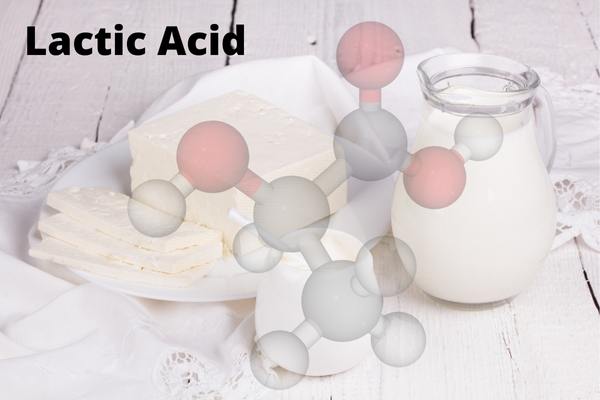Sour beer is a unique and increasingly popular style of beer that is intentionally brewed to have a tart, acidic taste.
This is achieved through the use of specific brewing techniques, such as spontaneous fermentation with wild yeast and bacteria, or by adding lactic acid-producing bacteria like Lactobacillus and Pediococcus.
The lactic acid bacteria used in sour beer fermentation can produce acids that may upset the stomach, similar to the effects of yogurts or vinegar. Additionally, the alcohol content in sour beers can cause stomach issues, especially for those sensitive to alcohol.
The gluten content of most sour beers is also something that can hurt the stomach of many people. Lastly, some sour beers may also contain higher sugar levels, which can be problematic for some individuals.
Common Types of Sour Beer
There are many different styles of sour beer, but some of the most popular include:
– Lambic: A spontaneously fermented beer from Belgium that is exposed to wild yeast and bacteria in the air. Often aged in barrels and blended with fruit.
– Gueuze: A blend of young and old lambics, which is then bottle-conditioned to create a sparkling, complex beer.
– Flanders Red Ale: A Belgian-style beer that is aged in oak barrels and has a sour, fruity taste.
– Berliner Weisse: A light, tart German wheat beer that is often served with flavored syrups to balance the acidity.
– Gose: A German-style beer brewed with coriander and salt, which adds a slightly salty, herbal character to the tart, sour base.
Acidity and its Effects on the Stomach
The most obvious reason why sour beer may hurt your stomach is its acidity. The pH of sour beers typically ranges from 3.0 to 3.7, which is significantly more acidic than most other beer styles. This can lead to acid reflux, as the lower pH can cause the lower esophageal sphincter to relax, allowing stomach acid to flow back up into the esophagus. This can cause a burning sensation in the chest and throat, as well as discomfort in the stomach.

How to Reduce Acid Reflux
If you find that sour beers trigger acid reflux, there are several steps you can take to reduce the risk and still enjoy your favorite brews:
1. Eat a meal before drinking: Consuming food before drinking sour beer can help buffer the stomach acid and reduce the likelihood of reflux.
2. Drink slowly and in moderation: Consuming sour beer in smaller quantities and at a slower pace can help reduce the impact on your stomach.
3. Avoid lying down after drinking: Acid reflux is more likely to occur when you’re lying down, so try to stay upright for a couple of hours after enjoying a sour beer.
4. Consider over-the-counter antacids: If you know you’re prone to acid reflux, you may want to take an antacid before consuming sour beer to help neutralize stomach acid.
Live Bacteria and Yeast: Good or Bad?
Sour beers often contain live bacteria and yeast, which can contribute to the complex flavors and aromas that characterize these brews. While these microorganisms are generally considered safe to consume, they can cause bloating, gas, and stomach discomfort in some individuals.
Probiotic Potential
Interestingly, some of the bacteria found in sour beers, such as Lactobacillus, are also found in probiotic supplements and fermented foods like yogurt and sauerkraut.
These bacteria are thought to have potential health benefits, such as promoting a healthy gut microbiome and supporting immune function.
However, the specific strains and concentrations of bacteria in sour beer can vary widely, so it’s difficult to say whether drinking sour beer will provide the same benefits as consuming other probiotic foods.
Are Probiotic Bacteria Always Good?
Lactic acid bacteria (LAB) are a group of bacteria that produce lactic acid as a metabolic byproduct during fermentation. While many strains of LAB are beneficial and play important roles in various processes, it is not accurate to say that all lactic acid bacteria are always good.
The impact of LAB on human health and other applications can vary depending on the specific strain and context.
In general, some potential benefits associated with certain strains of LAB include:
- Probiotic effects: Certain LAB strains, such as Lactobacillus and Bifidobacterium species, are commonly used as probiotics. They can help maintain a healthy balance of gut microbiota, promote digestion, enhance nutrient absorption, and support immune function.
- Food preservation: LAB are commonly used in the production of fermented foods, such as yogurt, cheese, sauerkraut, and pickles. They create an acidic environment that inhibits the growth of harmful bacteria, thus contributing to food safety and extended shelf life.
- Nutritional enhancement: LAB can enhance the nutritional quality of certain foods by synthesizing vitamins, improving protein digestibility, and reducing antinutritional factors. For example, LAB in fermented dairy products can increase the availability of certain nutrients like calcium and improve lactose digestion for individuals with lactose intolerance.
However, it’s important to note that not all LAB strains are beneficial, and some can cause negative effects in certain situations. For instance:
- Pathogenic strains: While rare, certain strains of LAB can cause infections, especially in individuals with compromised immune systems. These cases are typically associated with opportunistic infections or contamination of medical devices.
- Spoilage organisms: Some LAB strains can lead to spoilage in food products, resulting in off-flavors, texture changes, or other undesirable characteristics.
- Allergenic potential: In rare cases, LAB strains may induce allergic reactions in susceptible individuals, although such instances are infrequent.
Overall, lactic acid bacteria have many beneficial properties and are widely used in various fields. However, it is essential to consider the specific strain, context, and individual circumstances to determine whether a particular lactic acid bacteria is beneficial or potentially problematic.
Gluten content in sours may hurt your stomach
Types of sour beers like Gose and Lambic often contain wheat, making them unsuitable for gluten-free diets. Gose beers, originating from Germany, typically have wheat in their recipes, making it challenging to find gluten-free options.
However, a few gluten-free alternatives are available, such as Glutenberg Gose and Ghostfish Brewing Gosefish Hibiscus Cranberry Gose.
Lambic beers, traditionally brewed in Belgium, also contain wheat. While European law preserves traditional brewing recipes, gluten-free lambic options are gradually emerging.
Berliner Weisse, another sour beer style with German origins, is primarily made with wheat, limiting gluten-free options. However, there are some Berliner Weiss beers made with other grains or filtered to remove gluten residues.
Sour beers’ gluten content varies depending on the ingredients and brewing process. They will usually contain between 6000 to 12000 ppm, which is way above the 20 ppm tolerable to most celiacs.
It is crucial to check with the brewery to determine if they use gluten proteinase enzymes and filtration to remove gluten.
Sour beers can be either ales or lagers, depending on the fermentation process. Some argue that sours should have their own category separate from ales and lagers.

While there are gluten-free and gluten-removed beer options available, it’s important to note that gluten levels can vary across brands and batches. It is advisable to check specific beer labeling or contact the brewery directly to ensure it aligns with one’s gluten tolerance level.
In conclusion, most sour beers contain gluten, making them unsuitable for those with gluten intolerance. However, gluten-free options are expanding. It’s important to be mindful of the ingredients, brewing process, and potential stomach sensitivity when consuming sour beers.
Personal Tolerance and Sensitivity
Everyone’s tolerance to sour beer and its potential effects on the stomach will vary depending on factors such as genetics, diet, and gut microbiome composition. Some people may be more sensitive to the acidity or the presence of live bacteria and yeast, leading to stomach discomfort.
Experiment with Different Styles
If you find that certain sour beers cause stomach discomfort, don’t be afraid to experiment with different styles and breweries. You may find that some sour beers are more tolerable than others, allowing you to enjoy the unique flavors and aromas without the negative effects on your stomach.
Conclusion
In conclusion, sour beer can hurt your stomach due to its acidity, which can trigger acid reflux and stomach irritation. Additionally, the presence of live bacteria and yeast may cause bloating and gas in sensitive individuals. To enjoy sour beers without discomfort, consider eating a meal before drinking, drinking slowly and in moderation, staying upright after consumption, and experimenting with different sour beer styles.
10 Facts About Sour Beer:
1. Sour beers are intentionally brewed to have a tart, acidic taste.
2. Common sour beer styles include lambic, gueuze, Flanders red ale, Berliner Weisse, and gose.
3. The pH of sour beers typically ranges from 3.0 to 3.7, making them more acidic than most other beer styles.
4. Acidity in sour beers can lead to acid reflux and stomach discomfort for some individuals.
5. Eating a meal before drinking sour beer can help buffer stomach acid and reduce the risk of reflux.
6. Sour beers often contain live bacteria and yeast, which can contribute to the complex flavors and aromas.
7. Some bacteria found in sour beers, such as Lactobacillus, are also found in probiotic supplements and fermented foods.
8. Individual tolerance to sour beer and its effects on the stomach can vary widely.
9. Experimenting with different sour beer styles and breweries may help you find a brew that doesn’t cause stomach discomfort.
10. Enjoying sour beer in moderation and following the tips provided can help reduce the risk of stomach discomfort.
FAQs
Why do some beers hurt my stomach?
Some beers may hurt your stomach due to their high carbonation, acidity, or alcohol content. Additionally, certain ingredients or additives used in the brewing process may cause digestive discomfort in some individuals. It is important to pay attention to how your body reacts to different types of beer and to drink in moderation to avoid stomach discomfort.
How do you avoid gas when drinking beer?
To avoid gas when drinking beer, try pouring the beer slowly into a glass at a 45-degree angle to release some of the carbonation. Also, avoid drinking beer too quickly and consider taking smaller sips. Additionally, choosing beers with lower carbonation levels or opting for flat beers like stouts or porters can also help reduce gas.
How do you not get gas after drinking beer?
There is no guaranteed way to prevent gas after drinking beer, as it is a common side effect of consuming carbonated beverages. However, drinking beer in moderation, avoiding drinking it too quickly, and drinking it with food may help reduce the likelihood of experiencing gas.
Are sour beers worse for you?
No, sour beers are not inherently worse for you than other types of beer. However, like all alcoholic beverages, consuming sour beers in excess can have negative health effects.
Are sour beers good for your gut?
Yes, sour beers can be good for your gut as they contain probiotics which can help improve gut health and digestion. However, it is important to consume them in moderation as excessive alcohol consumption can have negative effects on gut health.
Do sour beers make you gassy?
Yes, sour beers can make you gassy. This is because they often contain higher levels of carbon dioxide and may also contain residual sugars that can ferment in the gut, leading to gas production. However, the extent to which sour beers affect an individual’s gas production can vary depending on factors such as their gut microbiome and overall digestive health.
Is beer high in probiotics?
No, beer is not high in probiotics. Probiotics are live bacteria and yeasts that are beneficial for the digestive system. While certain fermented foods like yogurt, kefir, and sauerkraut can be rich in probiotics, the brewing process of beer involves the fermentation of sugars by yeast, which primarily produces alcohol and carbon dioxide. The high alcohol content in beer inhibits the growth and survival of most probiotic bacteria. Therefore, although beer is a fermented beverage, it does not contain significant levels of probiotics.
Is beer a good probiotic?
No, beer is not a good probiotic. Probiotics are live bacteria and yeasts that provide health benefits when consumed in adequate amounts. While some fermented foods like yogurt, kefir, and certain types of pickles contain probiotics, beer does not fall into this category.
Beer is brewed through the fermentation of grains, usually barley, by yeast. During this fermentation process, the yeast consumes sugars and produces alcohol and carbon dioxide. While there may be some beneficial compounds in beer, such as antioxidants and polyphenols, it does not contain significant amounts of live bacteria or yeasts that can act as probiotics.
Furthermore, the alcohol content in beer can have negative effects on gut health. Excessive alcohol consumption can disrupt the balance of gut bacteria and lead to inflammation in the digestive system.
Therefore, if you are looking to incorporate probiotics into your diet, it is advisable to focus on foods specifically known for their probiotic content, such as yogurt, kefir, sauerkraut, kimchi, or kombucha, rather than relying on beer as a source of probiotics.
Can you get probiotics from beer?
No, beer does not naturally contain probiotics. Probiotics are live bacteria or yeasts that provide health benefits when consumed in adequate amounts. While some fermented foods like yogurt, kefir, and sauerkraut can be good sources of probiotics, the fermentation process involved in brewing beer does not promote the growth or survival of these beneficial microorganisms.
The primary microorganism involved in beer fermentation is yeast, which converts sugars into alcohol and carbon dioxide. While yeast does offer some nutritional benefits, it is not considered a probiotic. If you are looking to incorporate probiotics into your diet, it is best to explore other fermented foods or consider taking specific probiotic supplements.
What beer has the most probiotics?
Probiotics are live microorganisms that provide health benefits when consumed in adequate amounts. While most beers undergo a fermentation process that involves the use of yeast, which can have some probiotic properties, it’s important to note that the majority of commercially available beers do not contain significant levels of probiotics.
The fermentation process in beer production primarily converts sugars into alcohol and carbon dioxide. However, during this process, some beneficial bacteria and yeast strains may also be present, such as certain strains of Lactobacillus and Saccharomyces.
These organisms can contribute to the overall microbial diversity of the beer but are typically not present in sufficient quantities to confer substantial probiotic benefits.
That being said, there are some styles of beer that are intentionally brewed to contain higher levels of live bacteria and yeast, such as certain Belgian Lambic or Gueuze beers. These traditional sour beers undergo spontaneous fermentation, where wild yeasts and bacteria naturally present in the environment contribute to the fermentation process.
As a result, they may contain higher levels of probiotic microorganisms compared to other beer styles. However, it’s important to note that the specific probiotic content can vary significantly between batches and brands.
While some studies have suggested that certain beer styles, particularly those containing live cultures, may have potential probiotic effects, it’s essential to remember that the alcohol content in beer can also have negative health impacts when consumed excessively.
Therefore, if you are seeking probiotics, it is generally recommended to focus on other food sources like yogurt, kefir, sauerkraut, kimchi, or other fermented foods that are more reliable and controlled in terms of probiotic content.
Is beer good for your gut bacteria?
Beer can have both positive and negative effects on gut bacteria, depending on various factors. On one hand, beer is made through fermentation, which involves the action of beneficial bacteria and yeast. Some of these bacteria, such as Lactobacillus and Saccharomyces, can potentially have probiotic effects and contribute to a healthy gut microbiome.
However, it is important to note that the alcohol content in beer can have detrimental effects on gut bacteria. Alcohol consumption, including beer, can disrupt the balance of gut microbiota and lead to an overgrowth of harmful bacteria. Excessive alcohol consumption can also damage the intestinal lining, impairing the absorption of nutrients and further affecting the gut microbiome.
Furthermore, beer often contains gluten, which can be problematic for individuals with gluten sensitivities or celiac disease. Gluten can trigger inflammation and damage the gut lining, leading to imbalances in gut bacteria.
In summary, moderate consumption of beer may have some positive effects on gut bacteria due to the presence of beneficial bacteria from fermentation.
However, excessive alcohol consumption and the potential negative effects of gluten can outweigh these benefits and have a detrimental impact on the gut microbiome. It is always advisable to consume alcohol in moderation and consider individual sensitivities or health conditions.




